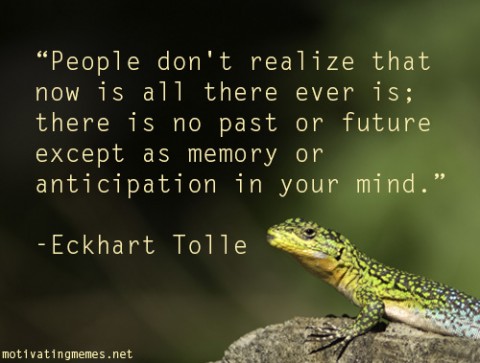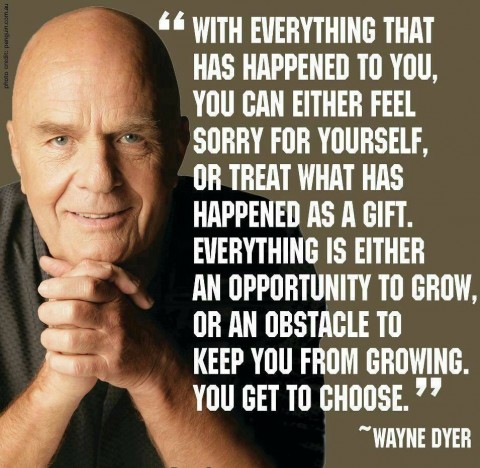
Author: Jacob Louis
Top 10 Brain Health Tips by Dr. Michael S. Trayford
While there are many “Top 10” lists out there, this is a list I have compiled based on years of literature review and firsthand experience in clinical neurological practice. While no list is ever complete and priorities and orders of importance change with the literature and time; these are, in my opinion, the top 10 ways you can help your brain perform at its maximum potential…in no particular order. While we offer many advanced applications for boosting brain performance, these are tools that every one of us has at our disposal and can begin to implement immediately.
1) Get plenty of sleep – While there is no definitive number of hours proven to be the best for humans, it is suggested by most experts that a minimum of 7 hours of uninterrupted sleep be observed by most. Care should be taken to remove any barriers to achieving and maintaining sleep from the bedroom (i.e. TVs, computers, excess light, poor quality/old beds, etc.). Among other things, memories are formed when we sleep and improved quality and duration of sleep can stave off cognitive decline due to aging. Click here for a New York Times article on impaired sleep and memory decline.
2) Manage your stress – Stress, namely the long-term continuous stressors many of us face on a day to day basis (e.g. jobs, relationships, traffic, finances, etc.), and the ill-effects it brings on are touted as the root cause of the majority of chronic diseases of our modern society. There are countless techniques available to us to help us manage stress including meditation, journaling, counseling, prayer, yoga, NLP, Tai Chi, etc., and they all have their distinct advantages with regard to helping our brains perform better. The majority of the research on stress reduction and the brain has been done in the area of meditation. Click here for a link to a great book written on meditation and its amazing impact on brain function.
3) Exercise – We all know we should do it and we need to ‘Make the Time’ instead of trying to ‘Find the Time’. The evidence is irrefutable; exercise makes your brain work better…period! From increased blood flow carrying oxygen and nutrients to our ‘Greedy Master’, to production of chemicals that help us connect nerve cells and even grow new ones; we all need to exercise. Click here for a link to my blog post on a phenomenal book that will teach you everything you want to know about this subject.
4) Drink plenty of WATER – Notice the word water is capitalized! While the occasional naturally flavored drink of your choice is fine, water should be your main source of hydration as it will eliminate intake of sugars, sugar substitutes, artificial flavors/colors, etc. that can all be harmful to your brain. Our bodies are made up of roughly 60% water content and our brains are even higher at upwards of 70-80%. General recommendations for intake are currently accepted by many to be 1/2 of your body weight in oz. of water per day (e.g. 140 lbs = 70 oz.).
5) Eat the right kind of fat – Another area where our brain requires more, and the right kind of, raw materials is fat consumption. Under normal circumstances our bodies are comprised 20-25% fat and our brains approximately 60%. While I am unable to get into the biochemistry of fats in this limited space, adhering to a few simple rules can help get you off to a good start. Avoid at all costs processed, man-made fats that fall under the general heading of ‘Trans Fats’. These are dangerous for our brains and bodies in so many ways, many of which we do not even know yet. Also, minimizing saturated fat intake is advisable for most (e.g. red meats, butters, etc.). Poly and monounsaturated fats found in whole food sources (nuts, vegetable oils, greens, etc.) and omega-3 fatty acids found in fish and other whole food sources are desirable for a better brain. Click here for a recent article on fats and your brain.
6) Learn something new – Exercise for your brain! Learning new subjects, skills and hobbies can help to preserve and build your brain’s resources to ensure it functions at its highest ability as we move through this journey of life. Novel stimulation has been shown to enhance brain activity immeasurably; whereas routine, monotonous type behaviors will likely ensure a slow, steady decline in cognitive function over time. Google ‘Learning and the Brain’ and sift through the 132 million results for some light reading to begin the process of learning and remember…We are NEVER too old to learn!
7) Eat your fruits and veggies – The benefits of REAL/WHOLE foods in our diets is endless, especially fruits and vegetables. They are low-calorie and loaded with vitamins, minerals, antioxidants, good sugars and fiber; which are all good for our brain. So many of our foods are far from their original source, so begin to learn (which is also good for your brain) about the dangers of processed and genetically modified foods and you will begin to develop an appreciation for fresh, whole foods that power your brain much more efficiently!
8) Be social – Much to my dismay this tip is often left off of many “Top 10” brain health lists and could quite possibly be one of the most important factors for a brain to be able to survive and thrive! Numerous studies over the past 100 years have shown how social isolation can cause significant psychological and neurological impairment, and even death in extreme cases. Social isolation disrupts myelin production, which is critical for nerve signaling and transmission. Volunteer, join a book club or service organization, take a class, walk the neighborhood and talk to your neighbors…put yourself out there – your brain will thank you! Click here to read more on social isolation and decreased myelin production.
9) Eliminate bad habits – Drinking, smoking, laziness, poor diet, worry, anger, sedentary behavior, dangerous physical activities, etc…Need I say more?
10) Set goals and move towards them – Our brain’s ‘reward system’ is intimately linked to our older emotional (limbic) brain on one end, and our newer cognitive (cortical) brain on the other. That said, to help balance and improve function in either of these regions, exercising our reward system is a critical step in the process. Further, the neurotransmitter dopamine is a key player in this system and it is increased with repetitive utilization of this system (this is the same neurotransmitter in short supply in conditions like Parkinson’s!). Goals must be realistic and attainable, but also strong enough to stretch our mental capacities for optimal benefit!
~Please enjoy, feel free to comment, share with others; and, most importantly, put these to good use!~

“Depression is not interesting to watch” -Brad Pitt

The more time you spend contemplating…

When an animal comes between the lion and its prey…

People don’t realize that now is all there is…

The Power of Reframing
 Ever hear the saying, “Don’t cry over spilled milk?” It means a lot more than may be initially apparent. Often times, people beat themselves up over insignificant mistakes or shortcomings. Sometimes people have a single seemingly negative experience that causes them to form a limiting belief about themselves or the world which hinders their success. These people often appear bitter, jaded or insecure. All it takes is a small shift in thinking to transform their lives. One might tell themselves, “I’m so clumsy! I can’t do anything right.” or they can simply clean the mess and have more positive self-talk like, “It’s okay. That milk was probably going sour anyway.”
Ever hear the saying, “Don’t cry over spilled milk?” It means a lot more than may be initially apparent. Often times, people beat themselves up over insignificant mistakes or shortcomings. Sometimes people have a single seemingly negative experience that causes them to form a limiting belief about themselves or the world which hinders their success. These people often appear bitter, jaded or insecure. All it takes is a small shift in thinking to transform their lives. One might tell themselves, “I’m so clumsy! I can’t do anything right.” or they can simply clean the mess and have more positive self-talk like, “It’s okay. That milk was probably going sour anyway.”
In each moment, we are perceiving reality through the lens of our senses, and the way we choose to interpret it is completely unique to who we are and what we believe from past experiences. If you’re speaking and some dude walks out of the room, you might take it personally and think, “He must be bored by what I’m saying. I must be boring,” or you can have a more optimistic outlook and think, “He must really have to pee, because what I’m saying is awesome.”
 Focus on becoming aware of any negative belief patterns that surface in various situations, and take time to remember the earliest event that triggered you to think that way. Then, you can look for evidence to disprove the negative beliefs. For example, if you think you’re too fat to get a girlfriend, look for examples of fat men who have girlfriends. The more you prove to yourself that your fears are irrational, the easier it will be to switch to a more confident mindset.
Focus on becoming aware of any negative belief patterns that surface in various situations, and take time to remember the earliest event that triggered you to think that way. Then, you can look for evidence to disprove the negative beliefs. For example, if you think you’re too fat to get a girlfriend, look for examples of fat men who have girlfriends. The more you prove to yourself that your fears are irrational, the easier it will be to switch to a more confident mindset.
Ever since the movie “The Secret” came out, the idea that you create your reality has been spreading like wildfire, and whether you believe in the law of attraction or not, hopefully now you can at least see how you create your experience of reality which dramatically affects your actions and results. If you don’t believe something is possible for you, the motivation to strive for it will be nonexistent. Keep an open mind, and practice seeing things from different perspectives. If someone is feeling upset, see if you can say something that reframes what’s bothering them and shines a more positive light. Find ways of seeing your supposed weaknesses as strengths. If you feel awkward approaching people in social situations, and think you might be viewed as an annoyance, you might reframe it by flipping the script and thinking something like, “I’m awesome, and all these people want me to approach them.”
Joe asked God, “How much is a penny worth in Heaven?”
God replied, “$1 million.”
Joe asked, “How long is a minute in Heaven?”
God said, “1 million years.”
Joe asked for a penny.
God said, “Sure, in a minute.”
“Aaron T. Beck developed cognitive therapy in the 1960s. Beck worked with patients that had been diagnosed with depression, and found that negative thoughts would come into minds of these patients. Beck helped his patients recognize the impact of their negative thoughts, and aided them in shifting their mindset to think more positively—eventually lessening or even getting rid of the patient’s depression. This process was termed cognitive restructuring – the main goal of which was to rethink negative thoughts and turn them into positive thoughts“
11 Affirmations for Being Attractive

Affirmations for Insecurity
It’s easy to get caught up in irrational F.E.A.R (false evidence appearing real). These affirmations are designed to help us release the subconscious programming that makes up these “what if?” worst case scenarios so that we don’t let our minds get in the way of our own happiness.

How To Use Affirmations, The Correct Way! (Law of Attraction)
Life is supposed to be wonderful. Louise Hay explains what causes affirmations not to work, and how to use affirmations the correct way.
